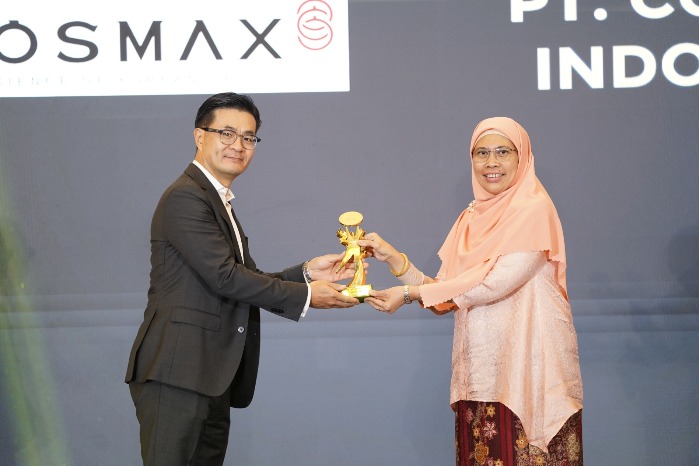Cosmax Inc., a South Korean original development manufacturer (ODM) of global cosmetics that also does research and development in the field, has won the grand prize in the cosmetics category at this year’s LPPOM MUI Halal Awards of Indonesia, the world’s largest halal market.
Since receiving halal certification there in 2016, Cosmax has used its high-tech prowess and localization efforts to have the largest number of new halal-certified cosmetic products by one company in the Southeast Asian country.
Cosmax on Wednesday said it won the top honor in the cosmetics category of Best Halal System Implementation at the awards ceremony in Jakarta. Cosmax is the first South Korean business active in Indonesia to receive the prize.
Ranking fourth globally in population and with about 90% of its people being Muslim, Indonesia is considered the world’s largest halal market. LPPOM MUI, who hosted the awards, is the halal certification auditor for food, medicine and cosmetics under the Indonesian Ulema Council (MUI), the country’s top clerical body and one of the world’s top three halal certification entities along with the Department of Islamic Development Malaysia (JAKIM) and Islamic Religious Council of Singapore (MUIS).
Since acquiring halal certification from MUI in February 2016, Cosmax Indonesia has produced only halal products. Its cumulative 2,380 registered halal items are the most from one company on the Indonesian cosmetics market.
Cosmax is also maximizing research and development efforts in Indonesia through industry-academia cooperation with major universities there. Its focus is to secure differentiated raw materials by combining the company’s exclusive South Korean cosmetics know-how with native Indonesian plants, as shown in its release in July of The Arum, a brand using materials from such plants.
In October 2017, the Halal Product Assurance Act took effect to require halal certification for all products like food, medicine and cosmetics imported, distributed and sold in Indonesia. Accordingly, interest in halal beauty products in Southeast Asia’s largest economy is rising since halal certification for pharmaceuticals and health functional foods will be required from 2024 and for cosmetics from 2026.
Write to Soo-Jung Ha at [email protected]
